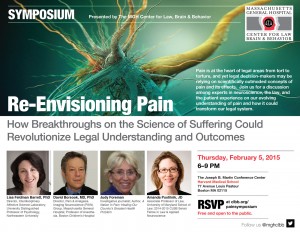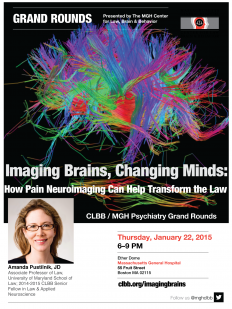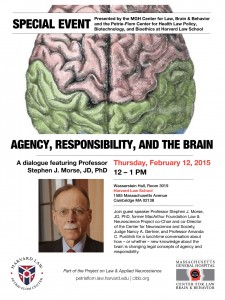Pain is at the heart of legal areas from tort to torture, and yet legal decision-makers may be relying on scientifically outmoded concepts of pain and its effects. This Symposium brought together legal and medical experts to discuss:
- Recent scientific breakthroughs in the understanding of pain, including long-term neurological changes
- The complicated relationship between pain and emotion, and how studying how physical and emotional pain are represented in the brain can help us understand their similarities and differences
- How updated understanding of the neuroscience of pain can help improve legal outcomes—and where the limits are
The conversation, presented by the CLBB Pain & Suffering working group, with support from the Harvard Mind Brain Behavior Interfaculty Initiative, was facilitated by Judy Foreman, an investigative journalist and author of A Nation In Pain: Healing Our Country’s Greatest Health Problem. Continue reading »







